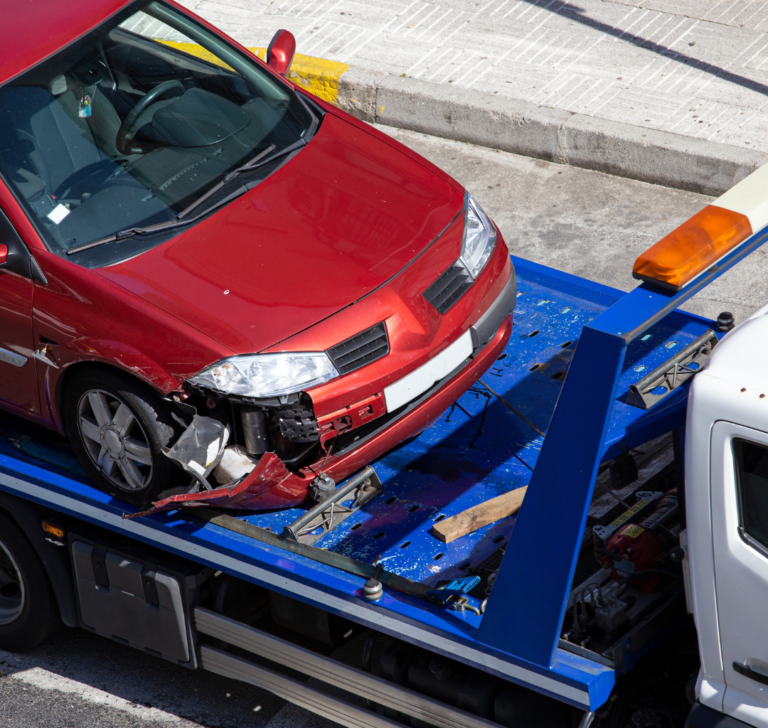Iowa and Illinois on new damage compensation legislation, Oregon on charging station repairs and Ohio on alert systems to prevent accidents.
Iowa and Illinois: proposals for legislation on compensation for heavy truck damages
Iowa and Illinois are examining legislation that will revise current regulations on compensation for damages related to accidents involving heavy trucks.
In August 2023, in Illinois, a civil liability bill was approved by Governor J.B. Pritzker. This bill amended the Wrongful Death Act to allow unlimited compensation for non-economic damages in cases of wrongful death, including compensation for pain and suffering. This was opposed by the Owner-Operator Independent Drivers Association (OOIDA).
Currently, Representative Ryan España is leading the HB4992 bill proposal, which seeks to limit non-economic damages in civil lawsuits against common carriers to a maximum of $2 million dollars per plaintiff. The proposal is currently in the House Rules Committee. OOIDA urges Illinois residents to contact their state legislators to support this civil liability bill.

In Iowa, in 2023, legislation was introduced that limited compensation for emotional damages to $5 million dollars. Although non-economic damages, such as pain and suffering, are limited, economic damages, such as lost wages or medical expenses, have no limit. Punitive damages, if awarded, are also not limited. OOIDA supported this legislation.
However, the Senate is considering a bill, SF2224, by Senator Molly Donahue, that would reverse the changes made the previous year regarding civil liability in cases involving large trucks. The bill would remove the state’s superior employer law and make employers liable for the negligence of their employees. It would also remove the $5 million dollar limit on non-economic damages set the previous year.
OOIDA criticizes the legislation as an attempt to benefit plaintiffs at the expense of trucking employers. It warns that repealing the negligent hiring liability standard would make defending truck cases in Iowa more difficult and expensive.
Oregon: electric charging station repair
As part of the Electric Vehicle Charger Reliability and Accessibility Accelerator program, Oregon will receive a $10 million dollar grant to improve and repair electric vehicle charging stations. This fund will benefit 135 public electric vehicle charging stations in the state, allowing for repairs, upgrades, and the installation of more fast-charging ports. The distribution of these federal funds will be overseen by ODOT’s Climate Office, which will collaborate with private station owners to execute the improvement projects. According to ODOT, repair and improvement projects will begin in late 2024.

Ohio: highway traffic alert system
The Ohio Department of Transportation will implement a new alert system at 13 identified points as high congestion areas. This system will include cameras to detect slow or stopped traffic, automatically sending alerts to message boards and traffic applications.
Jack Marchbanks, director of ODOT, emphasized the importance of these measures for saving lives and reducing crashes on highways. Ohio Governor Mike DeWine underscored that the technology complements safe driving, emphasizing the need for drivers to remain vigilant. A 16% reduction in rear-end collisions is projected with the implementation of this system.

The story of the first car race in Paris: a historic hit in 1894
Paris stands not only as a cultural and artistic epicenter but also as a pioneer in car racing In the history of automotive racing, Paris

Top states for driving in the United States in 2024
A WalletHub study compared all 50 states to determine the best driving conditions Road safety and quality are central concerns for drivers. And while the

Briefs: marijuana reclassification, vehicle fees, and climate grants
The trucking industry goes through new legislation, taxes and subsidies Questions about the proposed reclassification of marijuana The Owner-Operator Independent Drivers Association (OOIDA) supports the

Impact of traffic pollution: study reveals increase in blood pressure
A study from the University of Washington in Seattle reveals that the main cause of significant increases in blood pressure might be traffic-related gasses A

The benefits and careers of a Commercial Driver’s License
Having a CDL opens multiple doors within the trucking and transportation industry Having a Commercial Driver’s License (CDL) opens multiple doors within the trucking industry,

Sharing the road with a truck: steps to ensure your safety
Caution around blind spots and anticipating truck maneuvers are essential to ensuring everyone’s safety Truck drivers face significant challenges on the road due to their
